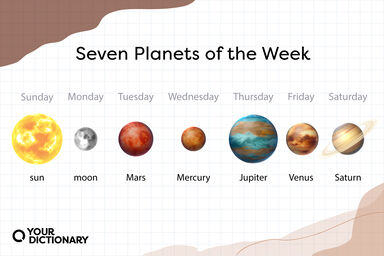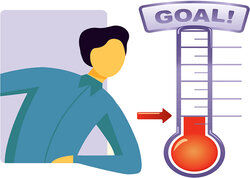Week Definition
- hebdomad
- calendar week
- workweek
- work week
- forty-hour week
- working-week
- six days
- seven days
- a week, counting backward or forward, from Sunday (or Monday, Tuesday, etc.)
- a week, counting backward or forward, from today (or yesterday, etc.)
- every week or for many successive weeks
- each week
- every week
Other Word Forms of Week
Noun
Idioms, Phrasal Verbs Related to Week
- Sunday (or Monday or Tuesday, etc.) week
- this day (or yesterday, etc.) week
- week after week
- week by week
- week in, week out
Origin of Week
-
From Middle English weke, from Old English wice, wucu (“week"), from Proto-Germanic *wikÇ (“turn, succession, change, week"), from Proto-Indo-European *weig-, *weik- (“to bend, wind, turn, yield"). Related to Proto-Germanic *wÄ«kanÄ… (“to bend, yield, cease"). The Dutch noun derives from a related verb *waikwaz (“to yield"), via the current Dutch form wijken (“to cede, give way").
From Wiktionary
Related words are Old High German wohha (Modern German Woche), Old Frisian wike (West Frisian wike), Middle Dutch weke (“week") (modern Dutch week), Old Saxon wika, Old Norse vika (Icelandic vika, Norwegian veke Danish uge), Gothic 𐍅𐌹𐌺𐍉 (wikô, “turn for temple service"), Old English wÄ«can.
From Wiktionary
-
Middle English weke from Old English wicu weik-2 in Indo-European roots
From American Heritage Dictionary of the English Language, 5th Edition
Related Articles
Find Similar Words
Find similar words to week using the buttons below.





